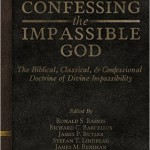In recent years, John Frame has chosen to engage in some of the current debates in the Reformed world surrounding Classical Theism and Theistic Personalism. These debates go beyond the Calvinistic Reformation, as they reflect discussions in the broader Christian theological community, whether Presbyterian, Lutheran, or Roman Catholic. In these debates, Frame has placed himself squarely within the “Theistic Personalism” school of thought, being highly critical particularly of Thomistic frameworks of understanding the divine essence and attributes.
In his most recent article, Frame poses what he argues are two opposing understandings of God’s transcendence: Pure Being and Divine Lordship. In this post, these ideas will be critiqued in light of Frame’s continual misunderstanding of the categories he argues against.
The dichotomy posed at the very base of this article between God as Pure Being and God as Lord is strange in itself, as there is nothing at all in opposition between these two understandings of God’s relationship to creation. It is this false dichotomy in his thesis that leads to a continual string of similarly false dichotomies.
Frame’s Understanding of Pure Being
The article begins with a description of what Frame labels “pure being” as a Greek conception of God. In this understanding, God has being in a fuller sense than anything else, which means that everything other than God is “metaphysically defective.” In Frame’s explanation of this view, everything other than God is not fully real. God’s transcendence therefore consists in his having pure being while everything else lacks perfection. He proposes that there is a kind of chain of being in which some things are higher, while others are lower. God is at the top of this chain.
At the start, Frame misunderstands Classical Theism in some fundamental ways. Frame lumps together all of these supposed notions of “pure being,” as if they are all united in these sweeping claims he continues to make. According to Frame’s broad generalization, Plato, Aristotle, and Aquinas (and the Protestant scholastics would fall in line with this as well) are all guilty of arguing for a “metaphysically defective” creation. This is simply not the case. In a Thomistic perspective (which is not identical with that of Aristotle), God’s esse (being, or existence) is necessary. God is identical with his own existence. All other things have existence only by participation, rather than by their own essence (in creatures there is a distinction between essence and existence). They are contingent, while God is not. This does not by any means imply a “metaphysical defect” on the part of creation. Instead, creatures are simply not the Creator. What God has in full, they have only secondarily, and dependently.
Frame’s notion of the real here is also decidedly Platonic. While Plato’s understanding of the forms leaves particular instantiations of objects as something less real than their unchangable form, such cannot be said of Aquinas. If Frame simply means that there are degrees of perfection in things, this is certainly and undeniably true. There are certainly gradations of goodness, beauty, etc. of which some objects have either more or less. A human is a greater being than the mosquito. Bach’s Brandenburg Concertos have more inherent beauty than a song from The Wiggles. There are certain beings whose potentialities have been more actualized than those of others, differentiating God who is pure act from his creation which includes both act and potency.
In his explanation of pure being, Frame argues that the early Greek philosophical project was as follows: “to understand the universe as being, being in some sort of relation to nonbeing.” Discussions of both being and non-being are certainly important for the pre-Socratics, but to argue that is alone was their philosophical project is overly simplistic. A number of questions guided early Greek philosophers, such as the relationship between one and many, change and stability, God and the world, as well as ethical concerns. While these ideas did speak to notions of both being and non-being, there were more complexities involved than this.
Frame notes what he sees as the problem with this “project” of discussing the relationship of being and non-being as follows:
But the project ran into some immediate roadblocks. For it quickly became evident that “being” could not be defined or described in any persuasive or helpful way. For to define “being” it was necessary at the very least to distinguish it from nonbeing. But if being is a truly universal predicate, if everything is being of some sort, then there is no nonbeing. Any time we try to define nonbeing (e.g. as “an absence of all qualities”), then that definition designates something in our world—i.e. a form of being. An absence of all qualities is, after all, something. It is something we can discuss and analyze in various ways. So nonbeing, so defined, is a form of being. But that means that there is no nonbeing, or that nonbeing (however defined) is a form of being.
According to him, there is no coherent way to explain what being is, due to the fact that one has no understanding of non-being. In reality, at least in its Thomistic form, the distinction is a rather simply one. Some things exist. Therefore, they have being. Other things do not exist, therefore they do not have being. Horses exist. They have being. Unicorns (as far as we know) do not exist. Therefore, they do not have being, other than a cognitional one within the human mind. Things that exist are further distinct in that some of contingent being (all created things) and God has necessary being.
The Church Fathers and that Evil Greek Philosophy
As many have argued since Harnack’s Hellenizing thesis, Frame contends that the early church read Greek ideas into the Biblical text, thus distorting the Christian faith from its purer roots. He blames Justin Martyr and Athenagoras for reading Plato’s idea of “degrees of being” into the Biblical text, and forming their understanding of God. I have read both Justin and Athenagoras rather extensively, and while they certainly use Plato favorably (though also criticize him at necessary points), I do not recall ever coming across a discussion of God as simply the highest on a chain of being.
Frame cites a passage from Exodus 3:14 which has often been used in these discussions as proof of God’s aseity, wherein God call’s himself “I am.” Frame argues that “the temptation to read ‘I AM’ as metaphysical being was great,” but mistaken. He makes the rather irrelevant point that: “For one thing, the Exodus text is centuries older than the lifetime of Plato, and there is no reason to think that Moses had any interest in anything like Greek philosophy.” No one arguing for a reading of the text in which “I Am” refers at least in some sense to God’s own nature, as far as I am aware, purports that Moses had an interest in Plato or the questions of Greek philosophy. [1] However, that is completely irrelevant to Classical Theism. The claim is not that Moses was somehow philosophizing like Socrates or Plato, but instead that the phrase “I Am” contains a metaphysical commitment to God’s aseity. God exists, not contingently, but necessarily and is unbound by anything else in existence. None of the discussions among Greek philosophers are necessary to understand this.
Following this, Frame throws out another common retort in which God’s covenantal or economic acts are divorced from his own being. For Frame, “I Am” is simply about his covenantal relations. It refers to his relation to creatures, rather than God’s relation to himself. This misses the fact that God is who he is for Israel only because of who he is in himself. God’s covenantal dealings are grounded within his own nature. One cannot divorce ontology from soteriology.
Frame then further outlines what he sees as the three primary problems with Platonism’s influence on Christianity. Each will be briefly responded to here.
“(1) Plato’s forms were impersonal, and therefore were unfit to represent the God of Scripture.”
I am not sure what the relevance of this is. No early Christian who happened to use Plato’s philosophy identified God with impersonal forms. Since Middle-Platonism, through the writing of Philo, it has been common to identify the forms with ideas in the mind of God (and not with God himself). Whether one believes in a Neoplatonic modification of Plato’s idea of forms is completely irrelevant to claims regarding God’s personal nature. For Philo, as well as for Justin and Athenagoras, God is a deeply personal being. To argue that Christian Platonists hold to an impersonal God due to their conception of the forms is disingenuous.
“(2) In the systems of Plato and Plotinus, there is no clear distinction between creator and creature. The Forms of Plato and the One of Plotinus were not clearly distinct from the world of our experience. The difference between these levels of being is a difference in degree.”
This reading is simply wrong. God is being itself. We merely participate in being. This mere fact itself puts the Creator and creatures on completely separate grounds, metaphysically speaking. I would argue that it is the Theistic Personalists who see the difference in the Creator and creatures as one merely of degree through their concept of univocal predication.
“(3) As I mentioned earlier, it is impossible, in Greek philosophy, to define or even describe being, since it cannot be intelligibly distinguished from nonbeing. Being in this context is not a coherent concept.”
As demonstrated above, we have grounds within normal language and thought to differentiate between something which is and something which is not.
Conclusion
Frame’s argument against the use of Greek philosophy and of classical notions of being is based on both misunderstanding and false dichotomies. In the next post, I will address his representation of Thomas Aquinas.
[1] Though Justin does contend that the parallels between Moses and Plato were close enough that Moses must have influenced the later Greek writer.











